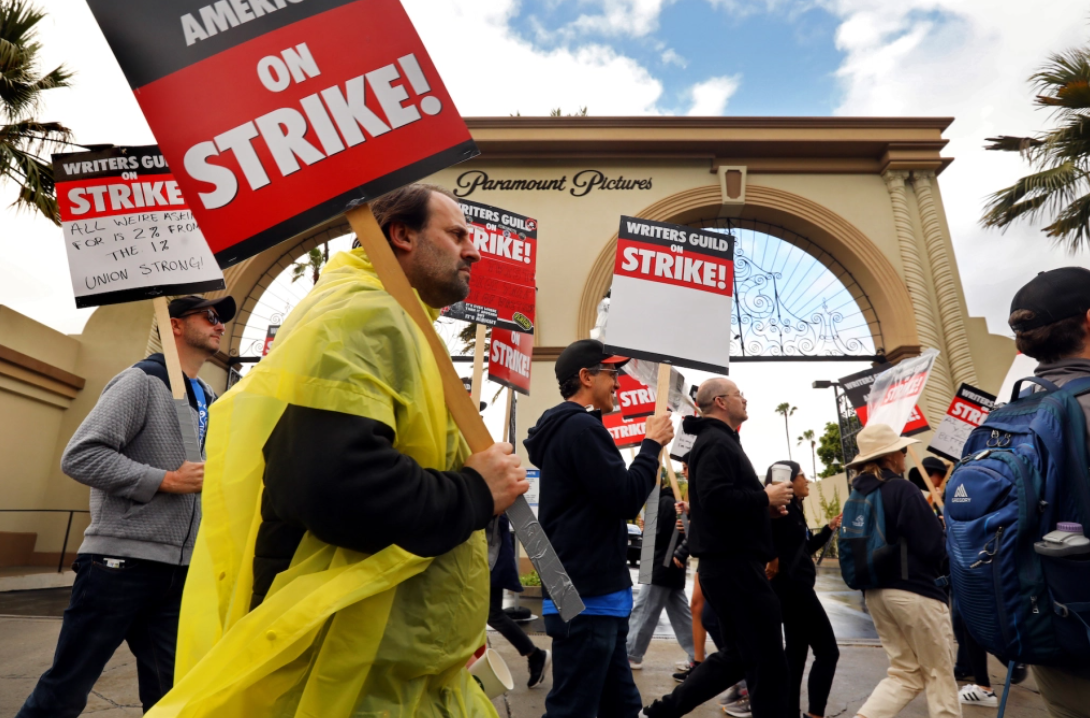Hollywood stars like Pedro Pascal, Charlize Theron and Joaquin Phoenix had said they were ready to go on strike if necessary
The US interpreters union joins the strike that the Writers Union (WGA) has maintained since May, thus undertaking a simultaneous strike for the first time in 63 years that would paralyze the Hollywood industry in its entirety.
“Going on strike is something very serious that can affect thousands and even millions of people across the country and around the world. (…) It was with great sadness that we arrived at this crossroads, but we had no other option”, expressed the president of the institution, Fran Drescher.
The decision, previously approved by 98% of the union members, was officially made after the meeting of the union’s board of directors held this Thursday.
With this, the SAG-AFTRA (in English) urged its members to stop providing all their services in jobs covered by the previous agreement and announced that the pickets will begin from Friday at 9:00 a.m. local time in Los Angeles (16:00 GMT ) at the Netflix headquarters.
A day earlier, the union tried to reach a conciliatory agreement with the Alliance of Film and Television Producers (AMPTP, in English). At their meeting they had the presence of federal mediators as an urgent measure to unblock the negotiations.
“As unbelievable as it sounds, we couldn’t get what our members deserve. Had he accepted, the situation would only have been worse. This is where we set our limit”, deepened Drescher, former protagonist of the series “The Nanny”.
However, he added that the union was still open to holding talks with the AMPTP this Thursday night in the hypothetical case that they were willing to have a deal considered cordial and fair.
More about Hollywood’s strike
But in the statement issued at dawn, the actress had expressed that the AMPTP’s response to her requests had been “insulting and disrespectful.”
The conciliation scenario looms distant. This morning, Disney CEO Bob Iger said on CNBC’s “Squawk Box” that the writers’ and actors’ unions had “unrealistic” expectations for the current situation in the industry.
Among the requests of the interpreters is the increase in base remuneration, diminished by inflation and “streaming”, the regulation of image rights with respect to artificial intelligence and the coverage of the cost of self-recorded auditions.
And one of the points that coincide with the writers’ struggle is in the payment of residual rights and transparency on the part of the platforms regarding how these amounts are calculated and based on what audience data.
The strike does not come by surprise. Already at the end of June some union members sent an internal letter to union leaders asking them not to settle for anything less than “a transformative agreement”, reiterating their willingness to start a strike.
The Hollywood industry, which was already being affected by the writers’ strike, will now have to face the definitive closure of the productions that had stayed afloat without the writers.
If most of the projects affected by the first strike focused more on television, without actors the cinema would immediately feel the blow of their absence, affecting not only the production and filming of films, but also the promotion of already finished projects.
International events such as the Emmy Awards, until now agreed for September 18, and the San Diego Comic-Con, scheduled for next Thursday, are also in danger.
The last time actors went on strike against studios was in 1980 over the benefits of home videotape and pay-TV, and it lasted for three months.
But it was the strike led by the writers in 2007-2008 that laid the foundations for the current conflict by focusing most of the discussions on paying for content distributed over the Internet.
